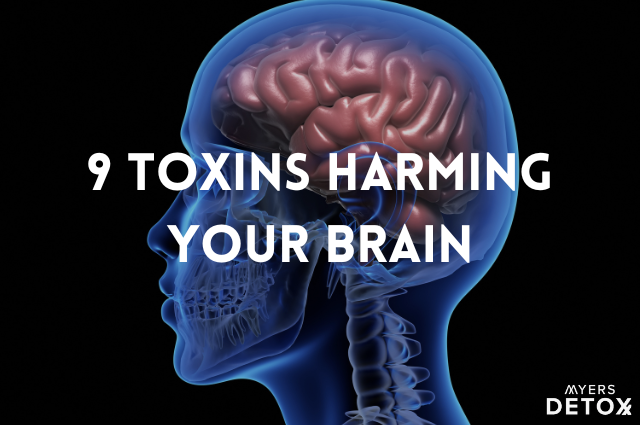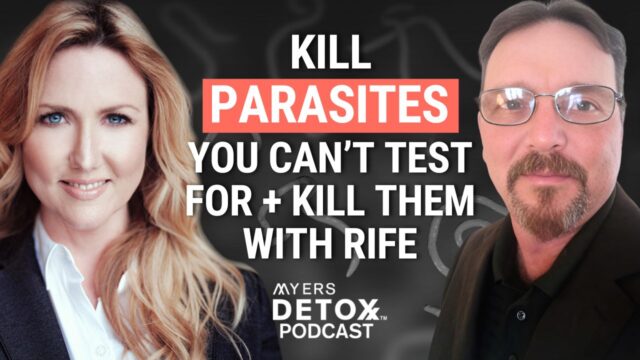If you do a quick google search for “how to manage stress,” you’ll find endless articles that provide different tips, tricks, and techniques for stress management. You’ll likely also find all kinds of supplements, books, talks, and so on that promise to have the answer that will make your stress disappear overnight.
But much of the content and suggestions out there are lacking – they don’t permanently reduce stress and have to be practiced for hours every week to be effective, which is not practical for most people.
So, how can you mitigate stress in your life in a way that will actually produce results?
In this article, you’ll learn:
- Why stress is something that needs to be taken very seriously
- How your body responds when you encounter a stressful trigger
- Why your stress response is both your best friend and worst enemy
- The detrimental downstream impact of stress
- A simple yet profound way to effortlessly neutralize stress
How Seriously Should You Take Stress?
It’s fair to say that stress, like many other things in life, is a relative state. For one person, a stressful week could throw them completely off course, while for another, the stresses of life roll off seemingly without care.
Regardless of which camp you fit into, stress is an unavoidable part of life, and learning how to manage it is crucial for overall health and wellbeing.
It’s easy to overlook the impact that acute stressors have on your life. For instance, let’s say you have a particularly challenging week at work, and you’re feeling on edge for a few days. Perhaps you can’t sleep, or maybe you end up feeling run down or even getting sick. While most people can relate to this scenario, does that mean that this type of stress should be ignored or even considered acceptable.
Absolutely not.
When you let acute stressors go unmanaged, it turns into chronic stress – and that’s where the real danger lies.
So, how seriously should you take stress? Research shows that 75-95% of human diseases are related to the activation of the stress response[1]. That’s a staggering number.
Can you imagine, then, how impactful it could be to learn how to manage and mitigate stress? How much healthier would you be, how much more energy would you have, and how much more productive and enthusiastic would you be in your life?
While most people simply accept that stress is a part of life these days, the truth is that stress has a tipping point. Below a certain threshold, stress can actually be beneficial, pushing you out of your comfort zone and strengthening your will and determination. But past that threshold, it can be severely detrimental.
To better understand the toll that stress has on your physical body, let’s explore the physiology of the stress response.
The Physiology of Stress
To fully grasp the physiology of the stress response and how it can drastically change your state of being, it’s crucial to understand why this response was developed in the first place.
The stress response is one of the oldest mechanisms of the human body. Long before the development of the rational and logical brain, there were neural pathways in place to deal with stressors. Why? Because this is your survival response.
Your primitive ancestors would not have made it very far in history if this survival mechanism wasn’t in place, and thankfully it was, or we likely wouldn’t be here today.
Unlike the sheltered world we live in today, your ancestors often had real threats at their doorstep. Life wasn’t quite as comfortable back then, whether this came in the form of a predator, a raging storm, or even another human. The ability to respond to a threat quickly and efficiently was the difference between life and death.
Unfortunately, although we aren’t in life or death situations as often as our ancestors, our bodies and brains haven’t gotten the message. As a result, when you feel stress in your daily life, your body can react as though your life is in danger.
What exactly happens in a stress response?
Regardless of the situation (physical, emotional, chemical), your body responds to a stressful trigger by activating the amygdala (the brain region responsible for the stress response). The amygdala then goes on to alert a channel in your body called the HPA axis (hypothalamus-pituitary-adrenal). This triggers the release of stress hormones from your adrenal glands, including cortisol, adrenaline, epinephrine, and norepinephrine[2].
Once these stress signals are active, your body is officially in a stress response, also known as “fight or flight.”
In this response, your sympathetic nervous system is activated, which primes your body to fight or flee from whatever threat may be in your environment. As a result, your heart rate speeds up, your breathing becomes more shallow, your blood flows to your limbs, your senses sharpen, and your muscles become more activated. In other words, you’re ready to take on a threat[3]!
This system is incredibly complex and equally as efficient. If it wasn’t, humans likely wouldn’t have been able to evolve as they have.
But here’s the trouble. While your ancestors would come face to face with a threat every now and then, today we deal with stressors on a daily basis. If our brain was able to judge the severity of a stressor, then it would likely fall back and slow down the stress response.
Unfortunately, that’s not the case. Instead, your brain and body respond to everyday stressors as though it was a life-threatening scenario. As you can imagine, this takes a significant toll after a while.
The Downstream Impact of Stress
In the last several years, researchers have begun to deeply understand the immense impact of the stress response on the physical body. As mentioned previously, 75-90% of all diseases are said to be related to stress[1].
How can one response impact your body so significantly? When the stress response is active, it diverts energy away from other systems in your body. Your brain says, “Okay, they’re dealing with a life-threatening situation, this is not a time to focus on detox or digestion or sleep or healthy circulation, and it’s certainly not a time to nourish and strengthen the immune system.”
As a result, your body experiences both functional and structural changes that set the stage for further imbalances. Some examples include[4][5][6]:
- Issues with memory, learning, and overall cognitive function due to changes in neurological architecture.
- Digestive disorders such as colitis, IBS, and Crohn’s disease are due to inflammation in the GI tract.
- Nutrient malabsorption, lowered gastric secretions and reduced appetite due to impaired digestive functions.
- Issues with blood pressure, heart rate, and circulation may increase the risk of stroke and heart attack due to changes in cardiovascular function.
- More frequent illness and increased risk for chronic disease due to suppression of immune activity.
As you can see, almost every system in your body takes the back burner when your stress response is active, including detox. And the worst part is that as these systems become weaker, it creates even more stress on your body, resulting in a snowballing effect of stress and illness.
How to Rewire Yourself for Less Stress and More Joy
If any (or all) of the above signs resonate with you, it’s time to consider an emotional detox.
Did you know that over 67% of all physical health issues are due to emotional trauma? When you think about this, it’s staggering. And a huge reason is that people are not able to meet their physical health goals or feel good emotionally. Emotional stress must be addressed no matter what you’re trying to accomplish with your health.
Thats why, one of the most important detoxes you can do is an emotional detox.
But how do you do that? Where do you even start?
I created this Emotional Detox Program to help you navigate the process.
The Emotional Detox Program is a comprehensive roadmap for improving one of the most important, yet often overlooked areas of health — your emotional wellbeing. It’s based on over a decade of research, thousands of consultations with clients, and interviews with leading experts in emotional detox and healing.
In it, you’ll learn:
- How to quickly break free from stress, unresolved emotions, and past trauma
- Proven emotional detox strategies
- Mistakes in functional medicine and psychology that are unnecessarily costing people thousands of dollars
- The deep connection between your emotional & physical health
- How “stuck emotions” weaken your health
- Signs you’re suffering from trapped emotions and emotional trauma
- An early life “stressor” that can lead to a 20-year reduction in lifespan and increase your risk of 7 of the top 10 causes of death…
- The emotional risk factor that women are 50% more likely to be harmed by than men
- And much more!
Go here to learn how to break free from emotional baggage that is making you uncomfortable, tired, and stressed.
Takeaway
Stress changes your brain at a biological level. It makes you more reactive, decreases your ability to control your emotions, throws your hormones out of balance, and makes you more prone to mood disorders, brain fog, and more. The longer stress continues, the harder it is to escape the negative loop it creates.
But don’t worry! You can escape the stress loop!
If you’re ready to dig deep and feel a new level of freedom in your life, check out my Emotional Detox Program today to begin your emotional detox journey. Don’t let stress keep holing you back from living your best, healthiest, and happiest life!
*These statements have not been reviewed by the FDA. The Emotional Detox Program is not intended to diagnose, treat, cure, or prevent any disease. It is not intended to replace any medication or healing modality prescribed by your medical doctor.










